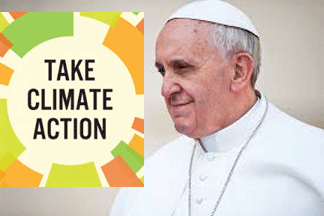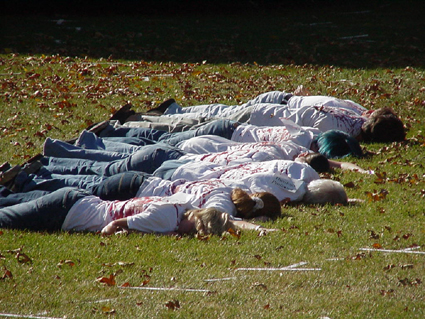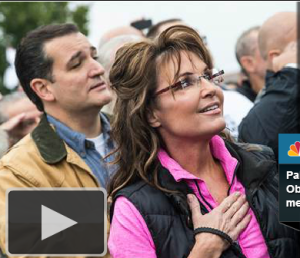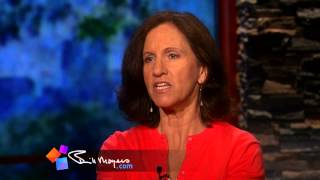 Word comes that June 18 is the unveiling date of Pope Francis’s widely anticipated encyclical letter on themes related to the environment. Media coverage will predictably dwell on the newness of such a papal pronouncement, which is to be expected from news. And there will be enough novelty in the occasion, starting with the fact that no pope has ever offered up an ecological encyclical. More interesting, though, is not what Francis will say about the new (about climate change and such), but what he will do with the old—with timeless notions of morality, justice, and the divine.
Word comes that June 18 is the unveiling date of Pope Francis’s widely anticipated encyclical letter on themes related to the environment. Media coverage will predictably dwell on the newness of such a papal pronouncement, which is to be expected from news. And there will be enough novelty in the occasion, starting with the fact that no pope has ever offered up an ecological encyclical. More interesting, though, is not what Francis will say about the new (about climate change and such), but what he will do with the old—with timeless notions of morality, justice, and the divine.
Acclaimed church analyst and Vatican watcher John Allen has issued a helpful alert, counting the ways in which reporters and pundits will spin the encyclical. Spin No. 2, as enumerated by Allen: “The encyclical is a dramatic break with Catholic tradition.” On the contrary, he believes informed people will conclude that the encyclical “is the tradition.”
Allen recalls, parenthetically, when the Vatican installed solar panels atop its main audience hall some years ago. He wrote a story at the time, leading with: “For two millennia, the Catholic Church has claimed to draw on the power of the Son. As of today, however, it’s also drawing on the power of the Sun.”
Point made. Father, Sun, and Holy Ghost. We’re not present at the creation of Catholic, much less Judeo-Christian, ecological consciousness. That stream began flowing some time ago, and the upcoming encyclical will certainly add to the currents. Beyond that, it’s hard to say just how much Francis will stretch official church teaching on the environment.
Much of the stretching has already taken place within the contours of Catholic social teaching during past papacies beginning notably with John Paul II’s. Here’s my top three list of Catholic social principles that have been arcing toward creation, and will undoubtedly arc further, with Francis’s encyclical:
1. The Person
The dignity of the human person has served as the starting point of church social doctrine. Only in the past quarter century or so have hierarchs conceded that nature, too, has dignity and deserves respect. As John Paul said in his 1990 World Day of Peace message, The Ecological Crisis: A Common Responsibility, the cosmos is “endowed with its own integrity, its own internal, dynamic balance.”
In other words, the natural world doesn’t exist merely for the pleasure and prosperity of humans, as had often been preached through centuries of Western Christianity. It has “its own integrity.”
Human beings haven’t been demoted, in the scheme of creation. We’ve just been put in our cosmic place. Popes and theologians have begun to clarify that humans, while pivotal in God’s design, are nonetheless part of creation, connected to other creatures because we too are creatures of God. Our common creaturely status means that both humans and nonhumans are “radically dependent on God’s ongoing creative activity,” as Terence L. Nichols wrote in his insightful 2003 book, The Sacred Cosmos.
I like this way of thinking. It swaps human-centrism not for eco-centrism (which would be a bad trade), but for a theocentric view of the universe. God is God and we are not.
2. The Poor
Catholic social teaching upholds a “preferential option for the poor.” Increasingly, the church has taken this principle of justice for the poor into debates over environmental justice.
Again, John Paul led the way. “The goods of the earth, which in the divine plan should be a common patrimony, often risk becoming the monopoly of a few who often spoil it and, sometimes, destroy it, thereby creating a loss for all humanity,” he proclaimed at a 1991 Vatican meeting on the ecological legacy of St. Francis of Assisi.
The reason for an ecological option for the poor is simple. Impoverished people and nations suffer most palpably from environmental problems such as rising sea levels and deforestation, reliant as they are on basic raw materials for their economic survival. A damaging cycle begins to take effect. Environmental destruction worsens poverty. Poverty triggers further environmental destruction, as poor nations desperately exploit their natural resources—ramping up mineral and fossil-fuel mining, for instance.
With that in mind, John Paul said in The Ecological Crisis that solutions to that crisis “will not be found without directly addressing structural forms of poverty that exist throughout the world.” Well before the Age of (Pope) Francis, John Paul knew there could be no option for the earth without a preferential option for the poor.
3. The Common (Planetary) Good
The common good is an ancient principle of both Catholic and philosophical ethics. About half a century ago, the Catholic Church began speaking of the “universal common good,” to underline the importance of international justice and solidarity. More recently, Catholic leaders have articulated a “planetary common good,” because “ecological concern has now heightened our awareness of just how interdependent our world is,” as the U.S. bishops pointed out in their 1991 pastoral statement, Renewing the Earth.
The goods of nature are about as common as they get. They include the air we breathe, the water we drink—and the climate we change. As Pope Benedict declared in 2007: “Preservation of the environment, promotion of sustainable development and particular attention to climate change are matters of grave concern for the entire human family.”
Protecting these goods calls for solidarity among individuals, groups, and nations, according to Catholic commentators. But the Vatican has taken a step toward deepening this notion of solidarity, giving nature a seat at the table. “There is a solidarity among all creatures arising from the fact that all have the same Creator and are all ordered to his glory,” said no less definitive a document as the 1992 Catechism of the Catholic Church.
The new solidarity extends as well into the future, tying the human community to what the U.S. bishops described as “generations yet unborn.” Since the earth is a common heritage, a gift from God, it has to be passed on to future generations, preferably in better condition than when it was received.
…
The encyclical is bound to be dramatic, simply by virtue of the fact that it is an encyclical, the most authoritative form of discourse by a pope. Catholic reflections on the environment will suddenly gain a status and authority they hadn’t enjoyed up to that point, even if Francis adds nothing of substance to that developing tradition within the tradition.
But what might he add, of substance? Where will he take these and other ideas about faith and the earth? How much further will he go toward affirming the common creatureliness of human beings and the natural world? It’s not immediately clear to me how you go beyond saying that people should be in solidarity with possum, or that the relationship between humans and the divine is radically similar to that between God and cod.
Answers will begin flowing, around June 18.











